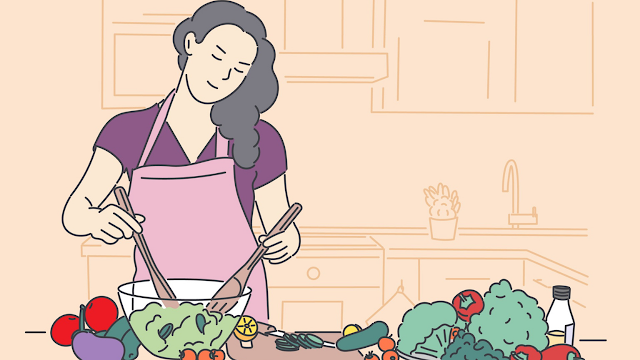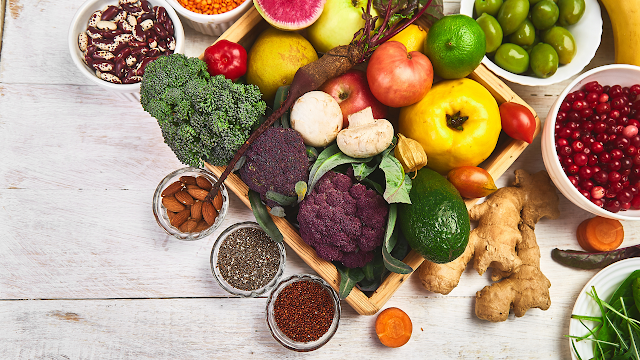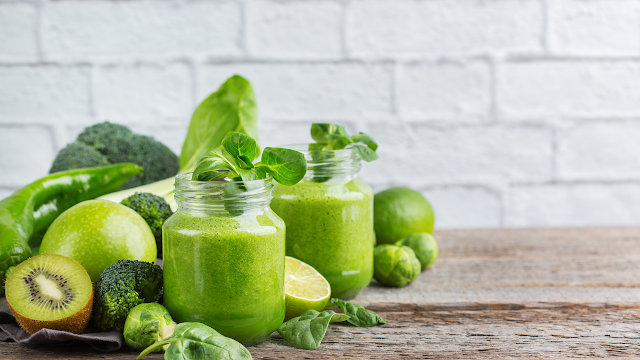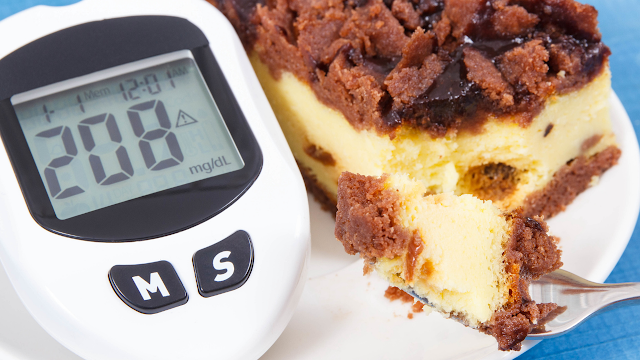The vegan diet has become increasingly popular in recent years, with no end in sight.
For those interested in the diet, it’s important to understand how to make the transition from carnivore to herbivore, especially if you want to maintain optimal health and wellness during your first few months of being a vegan (and beyond).
This guide for beginners will give you everything you need to know about the vegan diet, whether you’re just starting out or already transitioning!
What Is the Vegan Diet?
The vegan diet is a type of vegetarianism that excludes all animal products, including meat, eggs, and dairy.
Proponents of the vegan diet argue that it is the healthiest way to eat, because it eliminates processed foods and focuses on whole, unprocessed foods.
Some people adopt a vegan diet for ethical reasons, believing that eating animal products is wrong.
Different Types of Vegan Diets
Many people who follow a vegan diet are lacto-ovo-vegetarians, which means they eat only plant-based foods and dairy products.
Vegans also include vegans who consume no animal products at all. Some vegans may occasionally eat honey or use beeswax, while others avoid them as well because of ethical concerns.
Then there are raw vegans, who focus on unprocessed foods and don't cook above 115 degrees Fahrenheit. There are many different types of vegan diets, and you should pick one that works for you!
healthy vegan diet
A healthy vegan diet is just as much about what you should avoid eating as it is about what you should be eating.
To succeed at being a vegan, it’s important to think carefully about what foods are allowed on your plate and then learn how to prepare and combine them.
Vegan Diets Can Help You Lose Weight
As we age, it’s common for our metabolism to slow down. This is why it can be difficult to lose weight later in life especially as we enter our 40s and 50s.
A vegan diet is a natural way to keep your metabolism going strong well into your golden years, so consider adopting a plant-based diet if you’re looking for a new way of eating that will help you maintain a healthy weight.
Plant foods are naturally low in calories, high in nutrients, rich in antioxidants, and an ideal combination for maintaining stable blood sugar levels and keeping excess body fat at bay.
Vegan Diets, Blood Sugar, and Type 2 Diabetes
Vegans do not eat animal products, including meat, poultry, eggs, and dairy. Some vegans also avoid honey and other bee products.
If your blood sugar is too high, you have type 2 diabetes, a condition that is closely linked with diet.
In addition to promoting weight loss by lowering calories and saturated fat intake, a vegan diet that includes more whole grains, beans, and other low-glycemic foods may reduce the risk of developing diabetes.
Healthy people with type 2 diabetes may have better blood sugar control on a vegan diet because it contains high-fiber plant foods like fruits and vegetables.
However, if you already have type 2 diabetes or if you are overweight without type 2 diabetes then a vegan diet may worsen blood sugar control and make it harder for you to lose weight due to reduced intake of high fiber.
Vegan Diets and Heart Health
People with heart disease need a well-balanced diet that’s high in omega-3 fatty acids and other healthy fats, low in saturated fat, and moderate in salt.
The American Heart Association recommends a plant-based diet for people with heart disease because it contains good sources of protein, B vitamins, magnesium, potassium, and fiber all important nutrients for keeping your ticker ticking.
Vegan diets also tend to be rich in antioxidants like vitamins C and E which have been linked to lower rates of cardiovascular disease. For example, one recent study found that higher intakes of fruit, vegetables (particularly leafy greens), whole grains, nuts, and legumes predicted a lower risk of coronary artery calcification.
Other Health Benefits of Vegan Diets
A vegan diet can be a healthy way to lose weight and help lower your risk of heart disease, certain cancers, diabetes, and other diseases.
Many vegans are at lower risk for Type 2 diabetes than meat-eaters. Vegans who eat more healthfully (more fruits, vegetables, whole grains, nuts, and seeds) can reduce their risk of high blood pressure.
Vegans who avoid junk food will reduce their chances of getting heart disease and some cancers.
While vegans sometimes worry about not getting enough protein from foods that don't contain animal products, you actually get plenty on a balanced vegan diet.
What You Need to Know About Protein
Protein is an essential nutrient for human health. Vegans must eat a variety of foods in order to get enough protein in their diets.
Although animal sources of protein (such as meat, eggs, and dairy) contain all nine essential amino acids that your body can't produce on its own, plant sources do not.
That means vegans must be mindful about making sure they are getting all nine of these amino acids (called complete proteins) into their diet each day.
How Many Calories Should I Eat?
Your diet plan will vary depending on your age, gender, activity level, and current weight.
If you’re trying to lose weight fast, a dietitian can help you determine how many calories you should eat for weight loss each day.
Then, use an online calorie calculator to determine your recommended daily intake of carbohydrates, fat, and protein (aka macronutrients). Just be careful not to overeat or go below 1,200 calories per day.
The Real Benefits of Going Vegan
Vegans do not eat meat, poultry, seafood, or any other animal-derived foods. This is because these products cause harm and suffering to animals.
Vegans want their lifestyle choices even those as small as what they put on their breakfast cereal in the morning to reflect compassion for animals. But there are other good reasons for going vegan too:
* Vegans don't have to worry about eating food that contains antibiotics, hormones, or pesticides.
* Studies show that vegans are usually healthier than people who eat a lot of meat and dairy.
What Is the Difference Between Vegetarian and Vegan?
A vegetarian diet is based on food items that come from plants, like vegetables, grains, nuts, and fruits. Vegans do not eat foods that come from animals, including dairy products and eggs.
There are different types of vegans: Lacto-vegetarians consume dairy products; Ovo-vegetarians eat eggs, and vegans don't consume any animal products at all.
Many people think a vegan diet is expensive or difficult to follow, but in reality, it can be quite affordable and easy to follow if you’re creative with your ingredients.
Luckily for us, there are many inexpensive vegan alternatives available, so you can still enjoy your favorite meals without paying more money or feeling deprived.
What Does a Typical Day Look Like on a Vegan Diet?
Contrary to popular belief, a vegan diet doesn't consist solely of tofu and kale. There are many misconceptions out there about what vegans eat on a regular basis and if you're new to plant-based eating, it might seem as though there aren't many options.
In fact, if you take a look at any recipe website, vegan or not, you'll see just how varied and tasty plant-based meals can be. If that sounds an exciting bit overwhelming at first, don't worry we've got you covered.
Can I Get Enough Protein on a Vegan Diet?
There are plenty of ways to get enough protein on a vegan diet. Most Americans who eat meat get at least twice as much protein in their diet as they actually need, and there is little evidence that vegans have any greater health concerns related to insufficient protein intake.
For example, a cup of tofu provides about 17 grams of protein and 4 ounces of tempeh offers 20 grams both foods are rich in iron and other essential nutrients.
The recommended daily allowance for protein is 46 grams for men between 19 and 70 years old, but most Americans get almost twice that amount (about 56 grams per day).
In addition, beans are very high in both fiber and protein; one half-cup serving delivers 8g of fiber along with 7g of plant-based protein.
How Can I Eat Healthier on a Budget?
Plant-based diets are healthier than meat-eating diets. Consuming a lot of meat and dairy products can cause high cholesterol, heart disease, and other health problems, but vegans don't have to worry about these issues.
Vegans do need to pay special attention to how they get their protein, as many plant foods lack that macronutrient (and getting enough protein is important for staying healthy).
Vegans can get all the micronutrients (including protein) they need by eating a wide variety of plants and grains.
But it does take some planning and consideration; there are plenty of vegan foods that are low in nutrients (such as fried fast food), so you have to be choosy about what you eat.
What Are Some Favorite Recipes for Meal Planning?
Meal planning is a key part of any healthy diet, but it can be especially important for vegans. Plant-based diets, which are naturally higher in fiber and complex carbohydrates, tend to take more time to digest.
This means you’ll likely feel fuller longer if you eat smaller meals every few hours than if you wait until dinnertime.
An easy way to start meal planning for your vegan diet is by choosing one or two main dishes, such as tofu stir-fry or black bean burgers with lettuce wraps.
How Can I Stay Motivated?
Staying motivated on a vegan diet is easier when you have a good understanding of how your body reacts to certain foods.
Think of it as an experiment; it’s okay if you don’t like something, because you can simply stop eating it and move on.
In addition, all of your senses will be heightened while you adjust to a vegan diet, which means you’ll notice that many of your old favorite foods don’t actually taste good anymore.
This will make it easier for you to stay motivated because eating healthier foods just feels better and more natural.
Conclusion
The vegan diet can be beneficial, even necessary, for a variety of reasons. For example, some people switch to a vegan diet in order to lose weight or reverse serious medical conditions such as high blood pressure and high cholesterol.
A plant-based lifestyle also has benefits for animals and for the environment.





